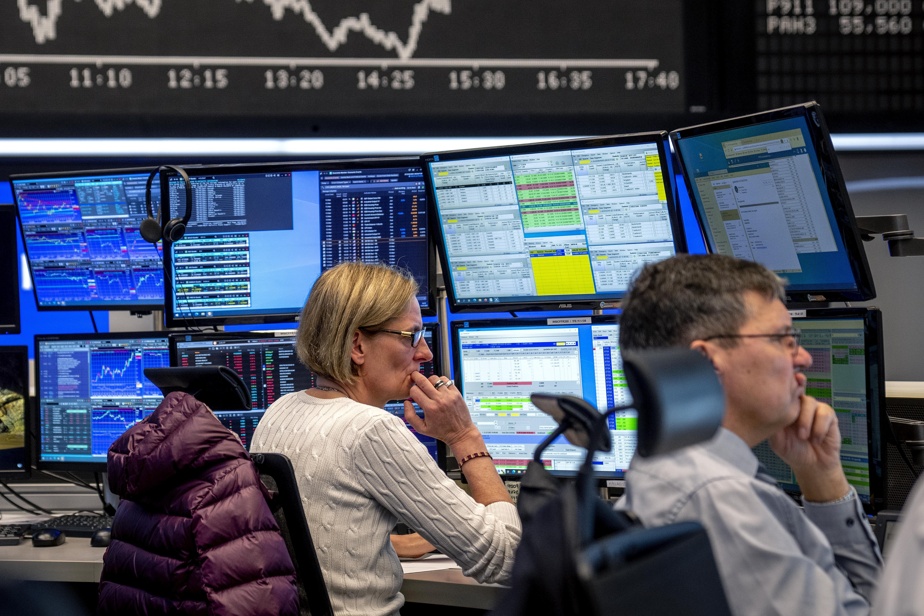(Paris) The respite was short-lived: despite the lifelines of the Swiss and American authorities, the banking sector relapsed on the stock market on Friday, dragging all the markets into the red.
As with all of this week, concerns are primarily focused on Credit Suisse in Europe, which is down almost 10%, and First Republic in the US, which is down 20%.
The European banks index lost 2%, widening its losses to 11% over the week.
The trend took over the European indices, which had nevertheless opened higher: around 10 a.m. (Eastern time), Paris fell sharply by 1.11%, Frankfurt by 1.04%, Milan by 1.33%, London by 0.67%.
Wall Street was also down 0.48% on the Dow Jones index, 0.14% on the S index
Eleven major US banks pledged Thursday to come to the rescue of First Republic, depositing $ 30 billion in this establishment to strengthen its liquidity and prevent the situation from escalating after the bankruptcies of Silicon Valley Bank, Signature Bank and Silvergate last week. This had brought him a brief respite on the stock market on Thursday (10%).
An effort hailed by the US Federal Reserve (Fed), the Treasury and two financial regulators, while investors are frightened by a possible risk of contagion to other banking establishments.
Bank failures across the Atlantic raised the specter of the 2008 financial crisis, which had destabilized the global economy.
In a sign of financial stress, US banks have since borrowed a total of $164.8 billion from two US Federal Reserve guarantee facilities in recent days, according to financial news agency Bloomberg.
Not enough to really calm investors. Over the week, First Republic fell by 66%, Credit Suisse by 25%.
The struggling Swiss banking giant has received support from the Swiss central bank to bolster its liquidity. The hypothesis of a takeover has resurfaced, according to analysts, but its rival UBS refuses for the time being to be involved, according to the Bloomberg agency.
The European Central Bank (ECB) is meeting its supervisory body for banks in the euro zone on Friday for an “exchange of views” on the banking sector after the turbulence of the past few days, AFP learned.
This is the second time that this body has been convened this week for an “ad hoc” meeting, outside the usual schedule, given the rapid developments affecting the banking sector.
The government bond market, whose volatility was the highest recorded since the 2008 crisis, remained turbulent with notable declines in interest rates.
All of this banking turmoil has fueled speculation that central banks might ease their stance on inflation in order to avoid a severe recession.
On Thursday, however, the ECB reaffirmed its determination to combat persistently high inflation by raising its key interest rates by an additional 0.5 percentage point, but refrained from deciding on further monetary tightening.
Investors will therefore closely monitor the next economic indicators in order to get an idea of the timing of future monetary tightening by the Fed, which is holding its monetary policy meeting next week.
For its part, the OECD raised its global growth forecasts for 2023 and 2024 on Friday thanks to lower inflation and the reopening of China. But she mentioned several risks including the difficulties encountered by some banks.
